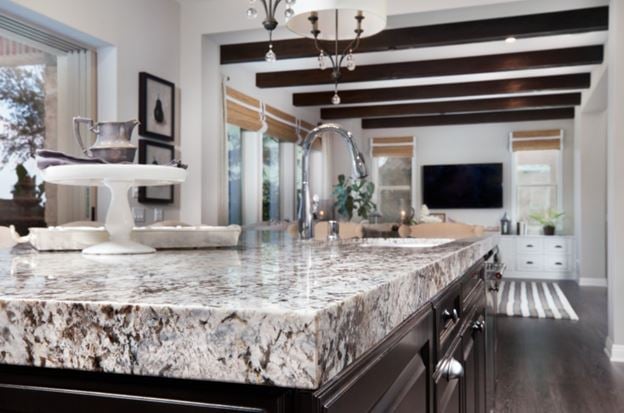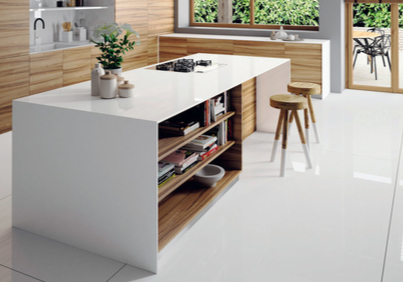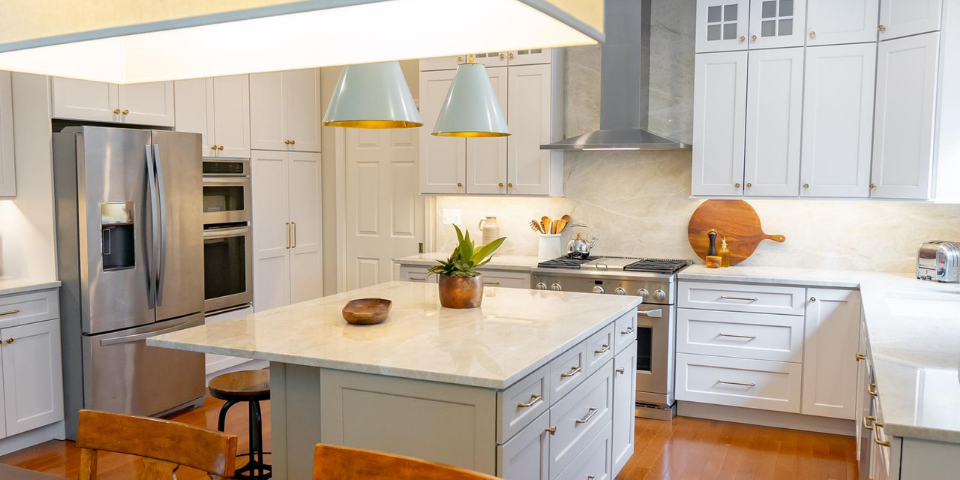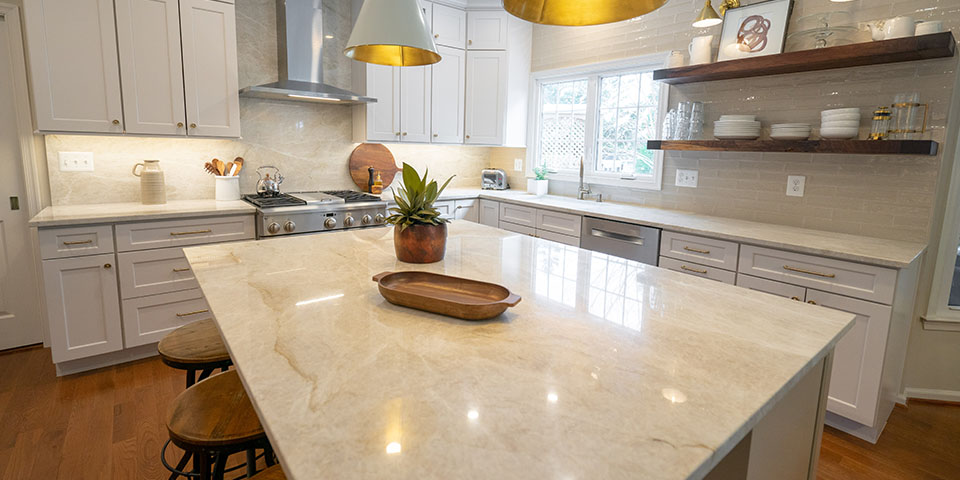In the realm of kitchen and bathroom countertops, Silestone Quartz has rapidly gained popularity for its exquisite appearance and remarkable durability. This article will provide an in-depth analysis of the pros and cons of Silestone Quartz countertops, helping you make an informed decision for your home renovation project.

This may interest you Marble vs. Engineered Stone: A Side-by-Side Comparison of Slabs
Understanding Silestone Quartz
What is Silestone Quartz?
Silestone Quartz is an engineered stone countertop material composed of 90% natural quartz crystals, making it exceptionally hard and resilient. The remaining 10% consists of resins, pigments, and binders that enhance its aesthetics and performance.
Pros of Silestone Quartz Countertops
1. Exceptional Durability
One of the standout advantages of Silestone Quartz countertops is their incredible durability. They are highly resistant to scratches, cracks, and chipping, making them ideal for high-traffic areas like kitchens.
2. Wide Range of Designs
Silestone Quartz offers an extensive selection of colors and patterns, allowing homeowners to find the perfect countertop to complement their interior decor.
3. Stain Resistance
These countertops are virtually stain-resistant, thanks to their non-porous surface. Spills and splatters are easily wiped clean, making maintenance a breeze.
4. Hygienic Surface
Silestone Quartz is naturally resistant to bacteria and microorganisms. This makes it an excellent choice for kitchen countertops, where hygiene is paramount.
5. Heat Resistance
While it’s always advisable to use heat-resistant pads, Silestone Quartz can withstand moderate heat without damage. This feature adds to its longevity.
6. Easy Installation
Professionals can install Silestone Quartz countertops with ease, ensuring a hassle-free renovation process.
Cons of Silestone Quartz Countertops
1. Price
The quality and durability of Silestone Quartz come at a price. These countertops are relatively more expensive than some other options on the market.
2. Susceptibility to UV Rays
Prolonged exposure to direct sunlight can cause Silestone Quartz countertops to fade or discolor. Therefore, they may not be the best choice for outdoor use.
3. Not Completely Heat-Resistant
While they can tolerate moderate heat, excessive heat can still cause damage to Silestone Quartz countertops. Always use heat-resistant pads or trivets.
4. Limited DIY Installation
Due to their weight and the precision required for installation, DIY installation is not recommended for Silestone Quartz countertops. Professional installation is advisable.
What is Silestone Quartz?
Silestone Quartz is an engineered stone countertop material composed of 90% natural quartz crystals, making it exceptionally hard and resilient. The remaining 10% consists of resins, pigments, and binders that enhance its aesthetics and performance.

Pros of Silestone Quartz Countertops
1. Exceptional Durability
One of the standout advantages of Silestone Quartz countertops is their incredible durability. They are highly resistant to scratches, cracks, and chipping, making them ideal for high-traffic areas like kitchens.
2. Wide Range of Designs
Silestone Quartz offers an extensive selection of colors and patterns, allowing homeowners to find the perfect countertop to complement their interior decor.
3. Stain Resistance
These countertops are virtually stain-resistant, thanks to their non-porous surface. Spills and splatters are easily wiped clean, making maintenance a breeze.
4. Hygienic Surface
Silestone Quartz is naturally resistant to bacteria and microorganisms. This makes it an excellent choice for kitchen countertops, where hygiene is paramount.
5. Heat Resistance
While it’s always advisable to use heat-resistant pads, Silestone Quartz can withstand moderate heat without damage. This feature adds to its longevity.
6. Easy Installation
Professionals can install Silestone Quartz countertops with ease, ensuring a hassle-free renovation process.
Cons of Silestone Quartz Countertops
1. Price
The quality and durability of Silestone Quartz come at a price. These countertops are relatively more expensive than some other options on the market.
2. Susceptibility to UV Rays
Prolonged exposure to direct sunlight can cause Silestone Quartz countertops to fade or discolor. Therefore, they may not be the best choice for outdoor use.
3. Not Completely Heat-Resistant
While they can tolerate moderate heat, excessive heat can still cause damage to Silestone Quartz countertops. Always use heat-resistant pads or trivets.
4. Limited DIY Installation
Due to their weight and the precision required for installation, DIY installation is not recommended for Silestone Quartz countertops. Professional installation is advisable.

Conclusion
In conclusion, Silestone Quartz countertops have numerous advantages that make them a popular choice among homeowners looking for both aesthetics and durability. However, they are not without their downsides, particularly the initial investment. When deciding on your countertop material, consider your budget, maintenance preferences, and intended use.
Frequently Asked Questions
1. Can I use Silestone Quartz countertops outdoors?
While Silestone Quartz is durable, it’s not recommended for outdoor use due to its susceptibility to UV rays, which can cause fading and discoloration.
2. Are Silestone Quartz countertops resistant to staining?
Yes, Silestone Quartz is virtually stain-resistant, making it easy to clean and maintain.
3. Is professional installation necessary for Silestone Quartz countertops?
Yes, professional installation is recommended due to the precision and weight of the countertops.
4. What makes Silestone Quartz hygienic for kitchens?
Silestone Quartz’s non-porous surface resists bacteria and microorganisms, ensuring a hygienic kitchen environment.
5. How do Silestone Quartz countertops compare in terms of price?
Silestone Quartz countertops tend to be more expensive than some other countertop materials, but their durability and aesthetics justify the cost.

